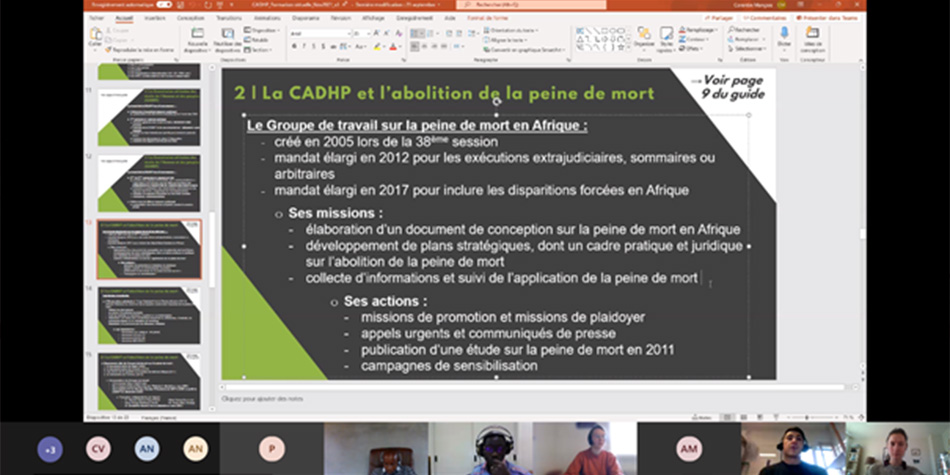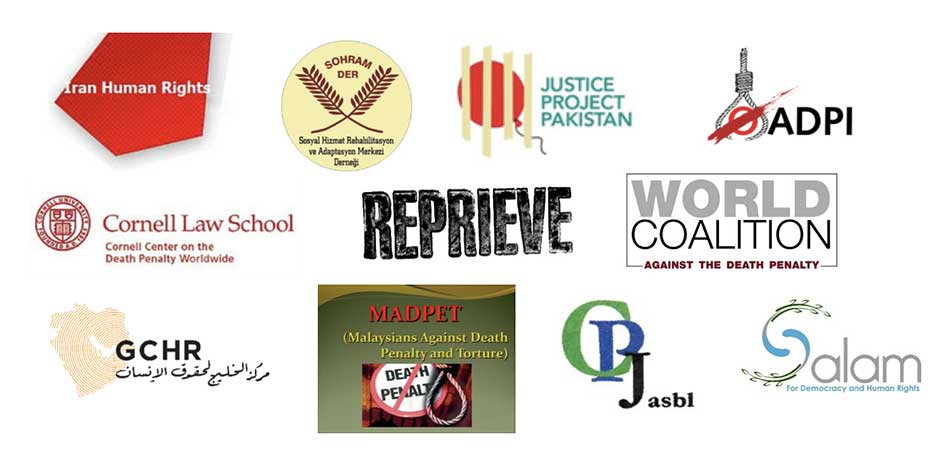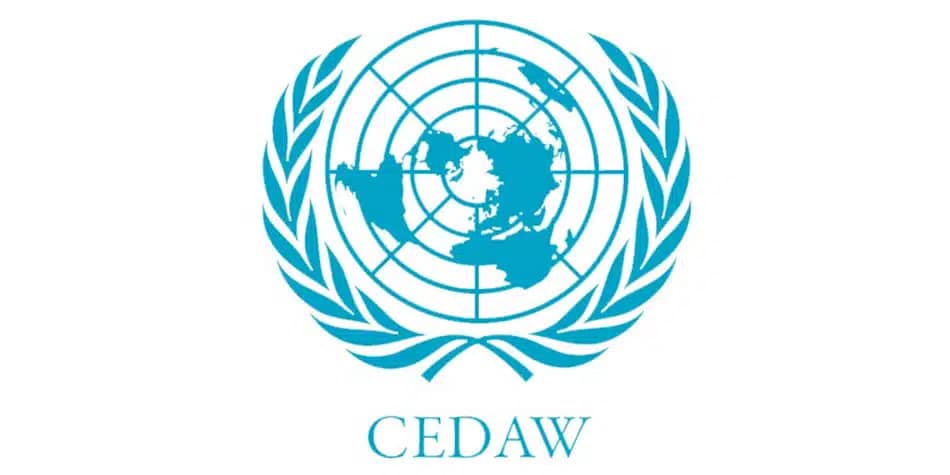
NGO Forum and 69th Ordinary Session of the African Commission of Human and Peoples’ Rights
Africa
The ACHPR (the African Commission on Human and Peoples’ Rights) met again virtually for its 69th Ordinary Session from 15 November – 5 December 2021.
The World Coalition, along with the FIACAT (the International Federation of ACATS), COJESKI-RDC, Pax Christi Uvira asbl, RAL (Rescue Alternatives Liberia), SHRDO (Society for Human Rights Development Organization), SYNAFEN (Syndicat national des agents de la formation et de l’éducation du Niger), CONICOPEM (Coalition Nigérienne contre la peine de mort), REPRODEVH (Réseau Progrès et Dévéloppement Humanitaire), UCPDHO (Union Chrétienne pour le Progrès et la Défense des Droits de l’Homme) joined the activities from a distance.
Women and the Death Penalty in Africa
The session started off on a high note following an advocacy win in July during the 33rd Extra-Ordinary Session. The Commission adopted their Resolution 483 on the need for better protection of women sentenced to death in Africa. The adoption of this resolution was in line with the World Day Against the Death Penalty’s theme this year, that focused on the impact the death penalty has on women. Resolution 483 is the fifth resolution the ACHPR has passed directly on capital punishment (including Resolution 42, 136, 375, 416, 483).
Virtual ACHPR Training
The World Coalition, in partnership with the FIACAT, kicked off the advocacy period with two on-line workshops for World Coalition members and ACATs (L’Action des chrétiens pour l’abolition de la torture) on 9 and 10 November. Each workshop was language oriented to allow participants to learn more about the functioning of the ACHPR and advocacy opportunities in French and in English. The training was heavily based on the training guide How to Work with the ACHPR to Abolish the Death Penalty published by the World Coalition Against the Death Penalty in April 2020. The World Coalition and the FIACAT offer this training twice per year and are working on a virtual version of this training.
Panel on the Death Penalty Ordinary Session
On November 25, 2021, the ACHPR’s Working Group on the Death Penalty, Extrajudicial, Summary or Arbitrary Executions and Enforced Disappearances in Africa organized a panel on the death penalty in Africa with the support of the World Coalition, FIACAT and the International Commission of Jurists (ICJ) Kenya. The panel was moderated by the Chair of the Working Group, the Honorable Commissioner Maya Sahli-Fadel. On this occasion, several panelists were invited to speak on various aspects related to the death penalty on the continent.
The president of FIACAT, Paul Angaman, started by drawing up an overview of the death penalty on the African continent, in particular by underlining the current decline in the number of executions and the use of this type of sentence. He also spoke about the draft Additional Protocol to the African Charter on Human and Peoples’ Rights on the abolition of the death penalty in Africa and the difficulties encountered by this legal tool which would accompany the abolitionist momentum on the continent.
Salvatore Saguès of the International Organization of the Francophonie (OIF) also spoke about the impact of the death penalty in the areas affected by this penalty based on the important network of his organization throughout French-speaking Africa, a linguistic space that concentrates today the vast majority of abolitionist African countries. Mr. Saguès recalled the hopes raised by the abolitionist cause in countries such as the Central African Republic, where President Faustin-Archange Touadéra hammered home his desire to abolish the death penalty during his inaugural speech in March, and in the Democratic Republic of Congo, where parliamentarians are making a name for themselves with their determination on the subject.
Finally, Joanne Mutonga, program manager at ICJ Kenya, brought a more English-speaking nuance by explaining the situation of capital punishment in her country. Although Kenya has a moratorium on the death penalty, it still retains the death penalty in its legal arsenal despite the regular commutations of death sentences to life imprisonment in recent years. Similarly, she pointed out that while the Kenyan Supreme Court ruled the death penalty unconstitutional in 2017, little progress has been made towards its total abolition. The panel concluded with Ms. Mutonga presenting the World Coalition’s guide for non-governmental organizations wishing to work with the ACHPR.
Photo Credit: WCADP- Training session in French on 10 November 2021.







